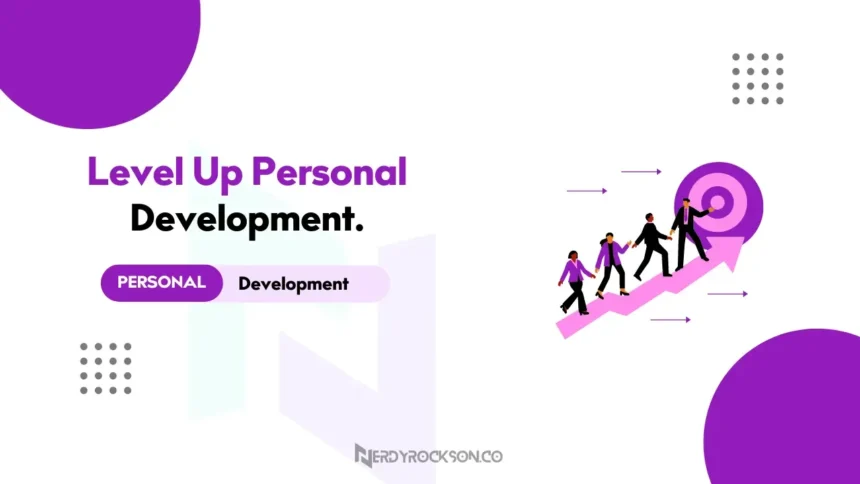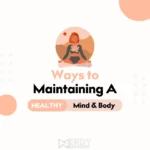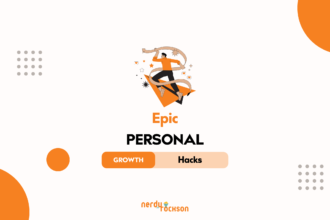Greetings, beautiful reader! Welcome to a cheeky little guide on personal development, the secret sauce to living your best life. You might think, “What’s all this fuss about personal development? Is it simply a posh way to say ‘adulting’?” Well, not quite. Personal development is about becoming your best version by cultivating skills, habits, and attitudes that lead to a well-rounded, fulfilling life. And who doesn’t want that, right?
Now, before you start imagining that personal development requires monumental life changes or extreme makeovers, let me reassure you. It’s actually the tiny, daily habits that can make a world of difference. It’s like brewing a proper cuppa: one tea bag and a splash of milk might not seem like much, but it’s pure magic when you do it right.
So, how do you conjure up this marvellous transformation? Fear not, my friend! We’ve got you covered with 10 brilliant daily habits that will help you improve your personal development game. Stick around, and together, we’ll unlock the secret to a more balanced, happier life – one smashing habit at a time!
Set clear goals
Ah, goals – those lovely little things that keep us going when the going gets tough. But not all goals are created equal, my friend! There’s a world of difference between setting realistic goals and chasing after pie-in-the-sky dreams. As lovely as it sounds, becoming a millionaire astronaut chef might not be the most attainable aspiration for most of us.
So, how do you separate the wheat from the chaff regarding goal setting? Enter the SMART goals! These clever little chaps are Specific, Measurable, Achievable, Relevant, and Time-bound. They’re the reliable workhorses of the goal-setting world, ensuring that you’re not just setting yourself up for a series of disappointments but rather working towards something attainable and worthwhile.
Let’s break it down, shall we?
- Specific: Say goodbye to vague aspirations! A proper goal should be crystal-clear, like “Learn to play ‘Bohemian Rhapsody’ on the piano” instead of “Become a musical genius.”
- Measurable: How will you know when you’ve achieved your goal? Make sure you can track your progress, like “Read 12 books this year” rather than “Become a bookworm.”
- Achievable: Ambition is great, but be realistic. “Run a half-marathon” might be more feasible than “Win an Olympic gold medal in running.”
- Relevant: Choose goals that align with your values and passions. If you can’t stand the sight of a paintbrush, maybe “Become an expert painter” isn’t the best goal for you.
- Time-bound: Give yourself a deadline to keep the momentum going. “Lose 10 pounds in 3 months” is more motivating than “Lose weight someday.”
Now that you’ve got the hang of setting SMART goals, it’s time for some witty advice on tracking and reviewing progress. Consider treating yourself to a fancy notebook (or a not-so-fancy one, if you prefer) and jot down your goals in all their splendid detail. Regularly review your progress, and don’t be shy about celebrating your victories, big or small – who doesn’t love a little pat on the back, eh?
And if you’re feeling particularly tech-savvy, there are plenty of goal-tracking apps out there to help you stay on track. Because let’s face it, in this day and age, there’s an app for everything, even for turning your wild dreams into proper, achievable goals. So, off you go! Set your sights high and start working towards a future filled with smashing accomplishments.
Prioritize self-care
You don’t have to be a King or a Queen to enjoy royal treatment now and then. Believe it or not, self-care is an essential aspect of personal development, and it doesn’t always require indulging in luxurious spa days or lavish feasts. Taking care of your mental and physical well-being is not only a right but also your royal duty to yourself.
Think of it this way: a well-tended garden flourishes while a neglected one withers away. Your mind and body are no different, so it’s crucial to tend to them with the same care and attention you’d give to the most precious English rose.
With that in mind, here are a few activities fit for a king or queen that you can incorporate into your daily life:
- Jogging in the park: Whether it’s a leisurely jaunt or a brisk run, jogging in the fresh air can do wonders for both your body and mind. Plus, you can admire the local greenery – or perhaps just the squirrels darting about.
- A spot of yoga: Unleash your inner zen and become bendier than a curly-wurly by practising yoga. Not only will you improve your flexibility, balance, and strength, but you’ll also find it easier to manage stress and find inner peace.
- Catching some Z’s: It’s not just an old wives’ tale – getting a proper night’s sleep is essential for your overall well-being. After all, even the Royals need their beauty sleep! Aim for 7-9 hours of quality shut-eye each night to keep your mind sharp and your body well-rested.
Remember, self-care isn’t selfish. By taking the time to look after yourself, you’re honouring your own well-being and ensuring that you have the energy and vitality to give your best to the world around you. So go on, treat yourself like royalty, and watch your personal development soar to regal heights!
Develop a morning routine.
Have you heard the saying, “The early bird catches the worm”? Well, there’s more to it than just getting dibs on the juiciest insects. Starting each day with a consistent morning routine can set the stage for a day full of productivity and personal growth. After all, if it’s good enough for the Queen, it’s good enough for you, too!
A well-crafted morning routine can help you clear your mind, set your intentions, and make the most of your day. It’s like giving yourself a royal head start in the race of life. Plus, there’s something immensely satisfying about ticking a few things off your to-do list before the world has even had its morning cuppa.
Here are a few examples of productive morning habits that will have you feeling like royalty in no time:
- Wake up with a smile: Begin your day by expressing gratitude for the simple things in life, like the fact that your alarm clock isn’t a trumpet-playing royal herald.
- Meditate or stretch: Spend a few minutes in quiet contemplation, or give your body a gentle wake-up call with light stretching. There is no need to perform a full-blown Changing of the Guard ceremony – just a little mindfulness will do!
- Treat yourself to a proper breakfast: You wouldn’t expect Her Majesty to start her day without a spot of breakfast, would you? Fuel your body with a nutritious meal, be it a hearty plate of eggs and bacon or a dainty bowl of porridge with a drizzle of honey.
- Map out your day: Grab your planner or your fanciest quill and parchment and jot down your goals and priorities for the day. When you’ve got a plan in place, you’ll feel more in control and ready to tackle whatever challenges lie ahead.
- Engage in a spot of light exercise: A brisk walk around the palace grounds (or your local park) can do wonders for your energy levels and set the stage for a productive day. Plus, you might even spot a corgi or two!
Remember, a routine morning fit for a king or queen isn’t about rigid rules or adhering to strict regimens. It’s about finding a set of habits that make you feel refreshed, focused, and ready to seize the day. So, rise and shine, and give yourself the royal treatment you deserve!
Practice gratitude
While there’s no denying the sheer joy of tucking into a piping hot serving of fish and chips, there’s so much more in life to be grateful for. Practising gratitude, it turns out, is a bit of a secret weapon for personal development. Focusing on the positive aspects of life and expressing appreciation for what we have can improve our mental health and overall well-being. In other words, gratitude is like a warm cuppa for the soul.
When we train our brains to focus on the good stuff, we rewire our thoughts to be more optimistic and resilient. And who doesn’t want a little more sunshine and rainbows in their life, eh?
So, how can you start cultivating gratitude in your daily life? Here are a few suggestions that won’t require you to pen lengthy love letters to your local chippy:
- Keep a gratitude journal: At the end of each day, jot down a few things you’re grateful for. It could be as simple as a friendly smile from a stranger or as profound as a loved one’s unwavering support. Just remember, no detail is too small when it comes to counting your blessings.
- Reflect on life’s little pleasures: As you go about your day, take a moment to pause and savour the small joys that life has to offer. It could be the warmth of the sun on your face, the aroma of freshly brewed coffee, or the sound of birds singing their morning tunes.
- Share your appreciation: Don’t be shy about expressing gratitude to the people in your life. A little acknowledgement goes a long way, whether it’s a heartfelt thank-you to a friend or a simple “cheers” to the barista who nailed your coffee order.
- Look for the silver lining: When life throws you a curveball (or, heaven forbid, soggy chips), try to find something positive in the situation. There’s often a lesson or a hidden opportunity to be found, even in the most challenging circumstances.
By incorporating gratitude into your daily routine, you’ll improve your personal development and spread happiness to those around you. So start counting your blessings – and not just the crispy, golden, vinegar-soaked ones!
Learn something new every day.
Now, don’t get your knickers in a twist – we’re not suggesting you return to school and relive the days of chalkboards and detention. However, it’s important to remember that learning doesn’t stop when we leave the classroom. Continuous learning is a crucial part of personal development, as it helps keep our minds sharp, our skills relevant, and our curiosity alive and kicking.
Think of your brain as a mental sponge, eager to soak up knowledge and grow. By learning something new daily, you’re expanding your horizons and staying one step ahead of life’s curveballs. After all, knowledge is power, as the saying goes, and we could all do with a bit more power in our lives, couldn’t we?
So, how can you ensure you’re nourishing your brain with a healthy diet of new information? Here are a few resources that are sure to quench your thirst for knowledge:
- Books: Whether you prefer a dusty old tome or a shiny e-reader, books are a treasure trove of wisdom, stories, and inspiration. And with so many genres to choose from, there’s bound to be something that tickles your fancy, even if it’s a cheeky collection of limericks.
- Podcasts: Consider podcasts as radio shows on demand, covering every topic. From insightful interviews to laugh-out-loud comedy, there’s a podcast for every taste, and you can listen to them while you’re on the go, doing chores, or simply lounging about.
- Online courses: Who needs a stuffy lecture hall when you’ve got the entire internet at your fingertips? Countless websites and platforms offer online courses on various subjects, from history to horticulture. And the best part? You can learn at your own pace, in your pyjamas if you wish!
- Documentaries and educational videos: If you’re more of a visual learner, there’s no shortage of documentaries and educational videos available to satisfy your curiosity. Don’t blame us if you binge-watch an entire series on the history of British biscuits – it’s surprisingly fascinating!
Remember, learning something new daily isn’t about becoming a know-it-all or flaunting your intellect. It’s about nurturing your curiosity, staying adaptable, and embracing the wonderful world of knowledge surrounding us. So, why not dive in and discover something new today? Who knows – you might even become the next pub quiz champion!
Seek feedback and constructive criticism.
Now, let’s talk about something as real as queuing and discussing the weather: the art of gracefully accepting feedback and criticism. Nobody is perfect (not even the Queen, though she comes pretty close), and we all have areas where we can improve. The key to self-improvement, then, is being open to feedback and seeking it out like a bloodhound on the trail of a delicious scone.
Think of feedback as a helpful nudge in the right direction rather than a personal attack. When your mate tells you a spot of spinach is stuck in your teeth, they’re not trying to embarrass you; they’re helping you avoid an awkward social faux pas. The same goes for constructive criticism – it’s an opportunity to learn, grow, and become even more brilliant than you already are.
So, how can you seek out feedback and take criticism like a true champ? Here are a few tips to get you started, served up with a side of amusing anecdotes:
- Be proactive: Don’t wait for feedback to knock at your door like an unexpected salesperson peddling encyclopedias. Instead, seek opinions from trusted friends, family members, or colleagues who can provide valuable insights into your strengths and areas for improvement.
- Listen with an open mind: When someone offers you constructive criticism, resist the urge to get defensive or make excuses. Instead, channel your inner Sherlock Holmes and listen carefully to what they’re saying, even if it stings more than a slap from a wet kipper.
- Reflect on the feedback: Take some time to mull over the criticism you’ve received, and ask yourself if it’s valid and valuable. If it is, use it as fuel for self-improvement; if not, let it roll off your back like water off a duck’s feathers.
- Show gratitude: Remember to thank the person who’s given you feedback, even if their words were as tough to swallow as a spoonful of Marmite. By expressing your appreciation, you’re not only being polite but also encouraging an open, honest dialogue that can lead to further growth and development.
By embracing feedback and criticism with grace and a touch of humour, you’ll be well on your way to becoming a better, more self-aware version of yourself. So, go forth and conquer the world of constructive criticism, and watch your personal development soar to new heights!
Cultivate strong relationships
While there’s no denying the unparalleled pleasure of indulging in afternoon tea with friends, building strong relationships goes far beyond sharing gossip over a cuppa and a plate of biscuits. Social connections play a crucial role in personal development, as they provide us with support, encouragement, and camaraderie on our journey towards becoming the best versions of ourselves.
Humans are social creatures by nature, and we thrive when surrounded by a network of like-minded individuals who lift us, challenge us, and inspire us to be better. Plus, having a solid support system can make life’s ups and downs a little bit easier to navigate – think of it as a safety net made of love, laughter, and the occasionally shared pot of tea.
So, how can you form and nurture meaningful relationships that will boost your personal development? Here are a few tips, served with a lighthearted touch and a dollop of British charm:
- Be genuinely rested in others: When you take the time to listen and engage with others truly, you’ll learn more about them and create a bond beyond small talk about the weather or the latest football scores.
- Offer a helping hand: Show your friends and loved ones that you care by offering your support, be it a shoulder to cry on, a word of encouragement, or a hand with their latest DIY disaster. Just remember to put the hammer down before offering a comforting hug!
- Communicate openly and honestly: A strong relationship is built on trust and open communication, so don’t be afraid to share your thoughts, feelings, and aspirations with those you hold dear. Make sure to do so tactfully, with a healthy dose of empathy and understanding.
- Celebrate each other’s successes: When your friends or loved ones achieve something great, be their biggest cheerleader and join the festivities. After all, their success is a testament to the incredible company you keep – and there’s nothing quite like celebrating with a round of Pimms and cucumber sandwiches.
By focusing on building solid and meaningful relationships, you’ll not only enrich your own life but also contribute to the personal development of those around you. So, go forth and cultivate your social connections – and remember, it’s not all about the tea and biscuits, although they certainly don’t hurt!
Practice time management
Picture this: you’ve got a mile-long to-do list, a seemingly endless parade of tasks, and the clock is ticking louder than Big Ben on a quiet night. What’s a Brit to do? Well, my dear friend, it’s time to roll up your sleeves, take a deep breath, and manage your time like an absolute boss. Effective time management is the secret ingredient for achieving your goals and avoiding the dreaded time sink of fussing about.
By organising and prioritising your daily tasks, you’ll be well on your way to a more productive and fulfilling life, with plenty of time left over for the essential things, like catching up on your favourite telly shows or indulging in a leisurely afternoon tea.
So, how can you whip your schedule into shape and become a master of time management? Here are a few humorous strategies that will have you ticking off tasks like there’s no tomorrow:
- Embrace the power of the list: Write down everything you need to do, from the most pressing deadlines to the tiniest errands. Then, take a moment to bask in the sheer beauty of your neatly organised chaos before diving in and tackling each task individually.
- Prioritise like a pro: Not all tasks are created equal, so use the ‘Queen-for-a-Day’ method to determine which ones deserve immediate attention. Ask yourself, “If I were the Queen, which tasks would I deem worthy of royal attention today?” Then, focus on those tasks first and leave the less important ones for later.
- Set a timer and challenge yourself: Nothing lights a fire under one’s posterior quite like the pressure of a ticking clock. So, set a timer for 20-25 minutes and see how much you can accomplish before it goes off. When the time’s up, take a short break to recharge your batteries – perhaps with a quick game of ‘Spot the Corgi’ – and dive back in for another round of focused work.
- Learn to say ‘no’ gracefully: As much as we’d like to be superheroes, there are only so many hours a day. So, when someone asks you to take on yet another task, channel your inner Boss and politely decline with a charming smile and a well-timed, “I’m sorry, but I’m afraid I’m rather swamped at the moment.”
By implementing these time management strategies, you’ll be well on your way to achieving your goals and making the most of every precious minute. So, go forth and conquer your to-do list – and remember, there’s no time for fussing about when you’re managing your time like a boss!
Embrace failure as a learning opportunity.
Ah, failure – the dreaded foe that we’ve all encountered at one time or another. But here’s the thing: failure is an essential part of personal development, and embracing it with a true Boss stoic spirit can lead to growth and success. You see, it’s not about how many times we stumble but how we pick ourselves up, dust off our trousers, and carry on with unwavering determination.
Resilience and a growth mindset are the keys to transforming setbacks into opportunities for growth. By learning from our mistakes and viewing them as valuable lessons, we can turn even the most disastrous of failures into a springboard for future triumphs.
So, how can you embrace failure like a true Boss and use it to motivate growth? Here are a few entertaining examples to inspire you:
- Channel your inner Thomas Edison: When the famous inventor was asked about his numerous failed attempts at creating the light bulb, he quipped, “I have not failed, and I’ve just found 10,000 ways that won’t work.” Embrace this mindset and view each setback as one step closer to success.
- Take a leaf out of Sir Winston Churchill’s book: The legendary British leader once said, “Success is not final, failure is not fatal: it is the courage to continue that count.” So, when faced with adversity, remember to keep calm, carry on, and perhaps even enjoy a cigar in true Churchillian fashion.
- Follow J.K. Rowling’s example: Before becoming one of the world’s most successful authors, Rowling faced numerous rejections for her Harry Potter manuscript. However, she didn’t let those setbacks stop her – and look at her now, with millions of fans and a Gringotts-worthy fortune to boot!
- Embrace the wisdom of Sir James Dyson: The revolutionary Dyson vacuum cleaner inventor experienced over 5,000 failed prototypes before finally hitting the jackpot. Now that’s some serious dedication to sucking up dirt!
By learning to embrace failure and use it as a catalyst for growth, you’ll not only become more resilient but also develop a deeper appreciation for the journey of personal development. So, keep calm, carry on, and remember that every setback is just another opportunity to grow and succeed – like a true Boss!
Give back to others
As you embark on your personal development journey, it’s important not to forget the value of giving back to others. You see, helping those around us not only contributes to the betterment of our community but can also lead to a sense of fulfilment and personal growth that’s worth more than a royal treasure trove.
When you lend a hand to someone in need, you’re not only positively impacting their life but also cultivating essential qualities like empathy, compassion, and gratitude within yourself. Plus, as the old saying goes, what goes around comes around – and being a good Samaritan can lead to a healthy dose of good karma coming your way.
So, how can you give back to others and positively impact your community? Here are a few suggestions, served up with a dash of British charm:
- Volunteer your time: Countless organisations and charities need a helping hand, so why not offer your time and skills to a cause close to your heart? From serving meals at a local food bank to walking dogs at an animal shelter, there’s no shortage of ways to make a difference.
- Share your knowledge: Are you a whiz at maths, a maestro on the guitar, or a Shakespearean scholar? Offer to tutor or mentor someone who could benefit from your expertise – not only will you be helping them, but you’ll also be honing your skills in the process.
- Lend an ear: Sometimes, the simplest way to help someone is by offering a listening ear and a shoulder to lean on. So, if you notice a friend or neighbour in need, take the time to lend your support and let them know they’re not alone.
- Perform random acts of kindness: Brighten someone’s day with a small, unexpected gesture, like leaving a cheerful note on a colleague’s desk or paying for the coffee of the person behind you in the queue. You never know – your kindness might just set off a chain reaction of good deeds!
By giving back to others and making a positive impact on your community, you’ll not only be contributing to a better world but also fostering your personal growth. So, go forth and spread kindness like confetti – because karma can be a right ol’ friend when you treat her well!
Conclusion
Well, there you have it, folks – ten brilliant ways to incorporate personal development into your daily life and become the best version of yourself on this side of the Thames. From setting reasonable goals and embracing failure to giving back to others and managing your time like a boss, these habits will set you on the path to a well-rounded and jolly good life.
Remember, it’s the small, daily changes that add up to a smashing transformation over time – like sipping a cuppa while perfecting your morning routine or expressing gratitude for life’s little pleasures (including, but not limited to, fish and chips).
So, what are you waiting for? It’s time to grab life by the crumpets and embark on your journey towards self-improvement. Take that first step with determination, humour, and a healthy dose of British wit, and you’ll be well on your way to a brighter, more fulfilling future.
Now, go forth and conquer your personal development goals – and remember, as you stride towards self-improvement, keep your head held high, your pinkie finger elegantly poised, and a cheeky grin firmly in place. After all, life’s too short not to have a bit of fun along the way!










Great suggestions for personal development. I love setting targets for myself but it is so hard to keep pushing towards these.